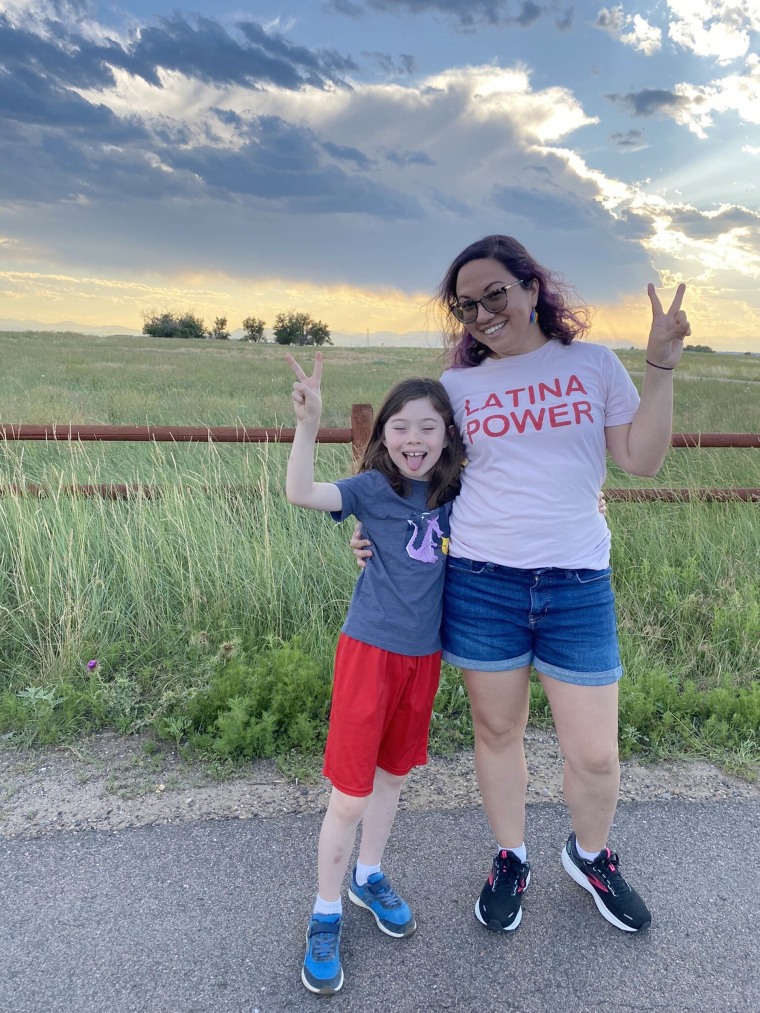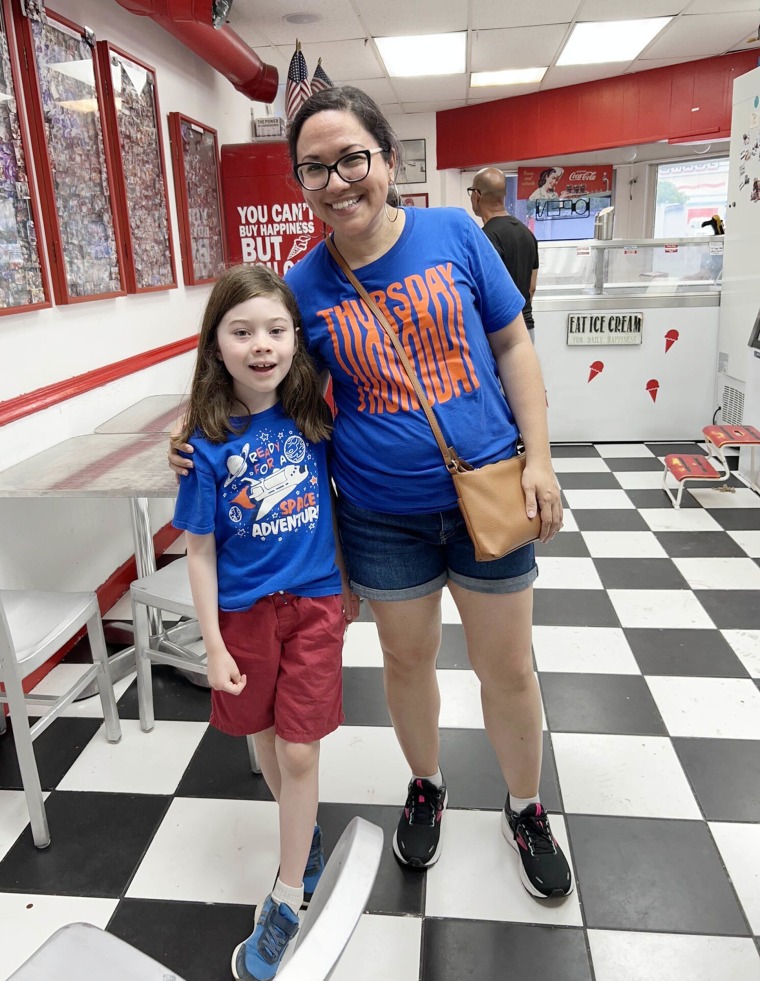Priscilla Blossom, a Nicaraguan- and Mexican-American, grew up talking Spanish however felt pressured to assimilate and would typically solely talk in English.
Now as a mother, she worries that her son, who solely speaks English, is lacking out on his heritage.
It’s normal for Latino Individuals to not be fluent in Spanish. In line with the Pew Analysis Middle, 24% of all Latino American adults say they will “solely keep it up a dialog in Spanish a bit of or by no means,” and 54% of non-Spanish-speaking Latino Individuals say they’ve been shamed by different Latinos for not talking Spanish.
“There are just a few issues — some ideas, emotions, and sentiments — that merely don’t totally translate, and it makes me unhappy to assume he could by no means totally perceive them.”
Priscilla Blossom on why she desires her son to study spanish
“I grew up in Miami,” Blossom, 39, tells TODAY.com. “I would typically go to shops or eating places the place nobody spoke English. Spanish was in all places, so whereas I realized it from my household it was, frankly, nearly a matter of survival to talk Spanish.”
Nonetheless, Blossom says at occasions, she would “refuse to talk Spanish” and would solely reply her mom in English.
“Regardless of residing in a predominantly Latinx space, there was loads of self-hate towards Latinidad and towards talking Spanish,” provides Blossom, who’s now 39. “Youngsters would see it as ‘lesser than’ and had a want to be ‘extra American’ — that means extra white. That influenced me so much and prevented me from studying much more Spanish.”

A number of research, together with analysis from the Middle for Comparative Immigration research on the College of California, San Diego, present that the strain for Latino immigrant households to assimilate to U.S. tradition results in a decline in Spanish fluency over time.
Esteban Touma, who teaches Spanish for Babbel Stay, a language studying platform, says it is “necessary to emphasise that language isn’t the primary factor that makes you a part of the Latino group.”
“We aren’t sure by language,” Touma tells TODAY.com. “I believe the most effective factor we are able to do is emphasize the notion that we do share a historical past of colonization. We do share loads of different components that may assist us discover a approach to unite and talk in a greater approach, whether or not we converse the identical language or not.”
Nonetheless, Touma believes that studying Spanish “lets you see the world with new eyes.”
“It will possibly develop your notion and in addition enable you to perceive the place your mother and father or grandparents got here from,” he provides. “It offers you new instruments to attach with these components of your identification.”
Blossom says she’s “all the time been fluent” in Spanish, however says it is “been a bit of uneven” and is “not pretty much as good as of late.”
When her 9-year-old son was 2, her household moved from Miami to Denver, Colorado, and Blossom says she now has just about nobody to talk with in Spanish.
The mother had hoped to boost her son to be bilingual, too, however the transfer has made it troublesome.
“I had no assist system and did not know anybody on the town who spoke Spanish,” she says. “His preschool was principally filled with white kids and academics and nobody spoke Spanish there both.”

Blossom’s son would attend after-school Spanish classes “now and again, when a college supplied it,” she says, however “sadly he solely is aware of just a few phrases and phrases.”
“It is irritating, as a result of I do know if I made the time perhaps I might present him extra,” Blossom says. “However as a busy working dad or mum, it’s not all the time potential.”
Whereas studying Spanish would develop future profession alternatives for her son and make it simpler for him to journey as an grownup, she says she actually desires him to study so he can higher talk together with his household.
“I might love for him to get to attach with the Spanish-only talking relations he has in Nicaragua he has but to fulfill,” she says. “There are just a few issues — some ideas, emotions, and sentiments — that merely don’t totally translate, and it makes me unhappy to assume he could by no means totally perceive them.”
Touma says it is common to really feel annoyed when studying or making an attempt to show a baby one other language, particularly when somebody is “feeling disgrace or insufficient for not having the ability to converse the language of their heritage.”
“Step one is simply to attempt to be a bit of bit extra immersed, whereas realizing that realizing the language doesn’t inflict by yourself identification and your capability to type a group,” he says.
I hope that my son continues to try to study what he can in order that he can really feel extra related to his identification.
Priscilla blossom, latina mother
Blossom says she did not understand how necessary understanding and talking Spanish was till she moved away from her hometown.
“It is extra some extent of satisfaction as of late,” she says — a full circle second when she thinks again on the strain to talk English as a baby with a purpose to assimilate.

